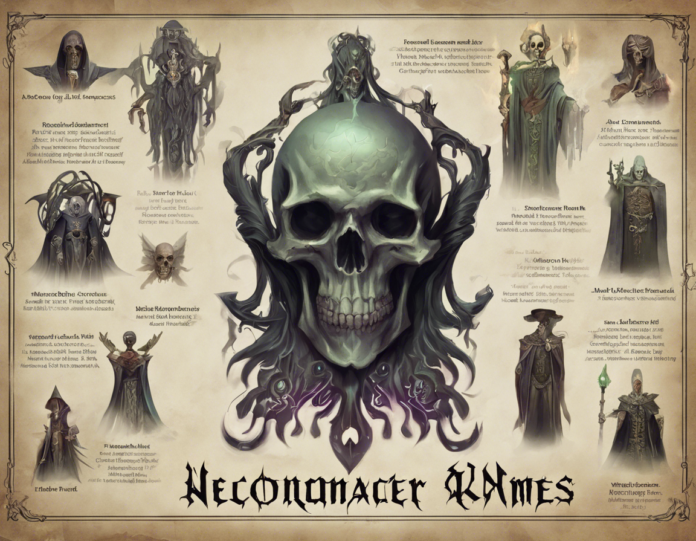Introduction:
Naming characters in a fantasy setting is crucial to creating a rich and immersive world. Necromancers hold a unique position in the world of fantasy, often wielding dark and powerful magic associated with death and the undead. Crafting a necromancer's name requires careful consideration to evoke the right atmosphere and convey the character's essence. In this guide, we will explore the different elements that make necromancer names distinct and provide a list of unique necromancer names to inspire your next story or role-playing adventure.
The Dark Arts of Naming: Deciphering the Elements of Necromancer Names
1. Suffixes and Prefixes:
- -omancy or -mancer: Suffixes like -omancy or -mancer denote magical abilities or divination. Combining these with roots related to death or the undead can create powerful necromancer names such as Gloomspeaker or Deathmancer.
- Necro-: The prefix necro- directly relates to death or the dead, adding a sinister tone to names like Necroshade or Necrothorn.
2. Descriptive Adjectives:
- Shadowed: Using adjectives like shadowed, haunted, or cursed sets a mysterious and foreboding tone for a necromancer's name. Consider names like Shadowedgrave or Cursedwhisper.
3. Symbolism and Imagery:
- Raven: Symbolism plays a significant role in necromancer names, with creatures like ravens, wolves, or serpents often associated with death and magic. Names like Ravenshroud or Serpentwhisper evoke this dark imagery effectively.
Unveiling the List: 10 Unique Necromancer Names to Inspire
1. Mortisgrim
2. Shadowspire
3. Grimblade
4. Bloodmoon
5. Nightshade
6. Soulweaver
7. Darkthorn
8. Ashencloak
9. Cryptbane
10. Voidwalker
Frequently Asked Questions (FAQs)
1. What is the significance of naming a necromancer character?
Naming a necromancer character is crucial as it sets the tone for the character and can convey their powers, motives, and personality. A well-chosen name can enhance the overall storytelling experience.
2. Should all necromancer names sound dark and ominous?
While many necromancer names tend to have a dark and ominous feel, there is room for variation depending on the character's background and story. Some names may convey a sense of mystery or even a hint of redemption.
3. How can symbolism be incorporated into necromancer names?
Symbolism can be incorporated by using animals, elements, or objects associated with death and magic. Creatures like ravens, wolves, or snakes, as well as terms like shadow, blood, or soul, can add depth to a necromancer's name.
4. Are there cultural influences to consider when naming a necromancer character?
Different cultures have varying beliefs and interpretations of death and the afterlife, which can influence necromancer names. Consider researching cultural myths, folklore, and legends to add authenticity to your character's name.
5. What role does language play in creating unique necromancer names?
Language can play a significant role in creating unique necromancer names by utilizing obscure or ancient words, translating relevant terms into different languages, or creating new combinations that evoke the desired tone and imagery.

